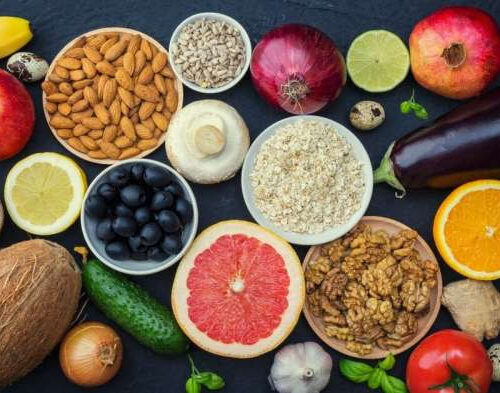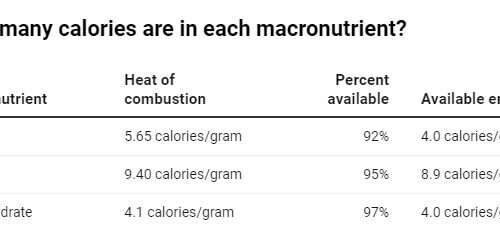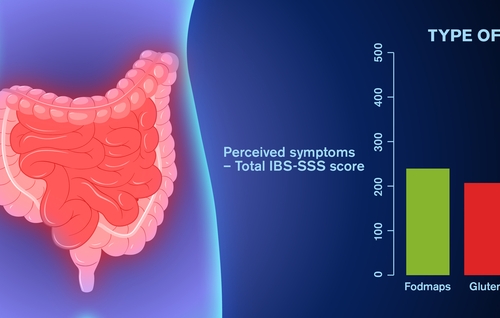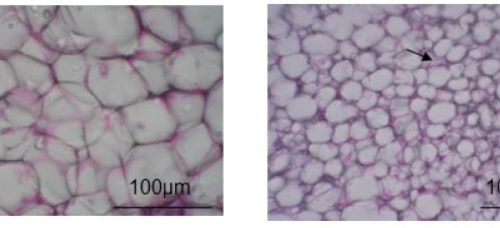UNIVERSITY OF CALIFORNIA – DAVIS Regularly eating a small serving of dried goji berries may help prevent or delay the development of age-related macular degeneration, or AMD, in healthy middle-aged people, according to a small, randomized trial conducted at the University of California, Davis. AMD is the leading cause of vision loss in older people, and is estimated...
Category: <span>Nutrition & Dietics</span>
Green-Med Diet Seems to Slow Age-Related Neurodegeneration
BEN-GURION UNIVERSITY OF THE NEGEV BEER-SHEVA, Israel, January 13, 2022 – A green Mediterranean diet, high in polyphenols and low in red and processed meat, seems to slow age-related brain atrophy, according to a new Ben-Gurion University of the Negev-led international study. The DIRECT PLUS 18-month long randomized control trial among ~300 participants is one...
An extra tablespoon of olive oil helps lower risk of death from cancer, heart disease, dementia!
(Photo by Polina Tankilevitch from Pexels) FOOD, HEART HEALTH JANUARY 11, 2022 by Study Finds WASHINGTON — Plenty of olive oil in your diet may help prevent death from heart disease, a new study finds. Researchers from the American College of Cardiology found that those who consume more than seven grams – or half a tablespoon...
Action needed on vitamin B12 deficiency in people following plant-based diets
by University of Surrey Credit: Pixabay/CC0 Public Domain Plant-based diets (vegetarian or vegan) are becoming significantly more popular as people look to adopt a diet that is seen to be better for the environment, animal welfare, and/or personal health. Sales of plant-based foods have seen a 49 percent increase in Western Europe since 2018. Scientists...
Four plant-based foods to eat every week, and why science suggests they’re good for you
by Clare Collins, The Conversation Credit: Shutterstock As a laureate professor in nutrition and dietetics people often ask—what do you eat? Plant-based foods are good sources of healthy nutrients. These include different types of dietary fiber, vitamins, minerals, and a range of “phytonutrients,” which plants produce to help them grow or protect them from pathogens...
Not all calories are equal: A dietitian explains the different ways the kinds of foods you eat matter to your body
by Terezie Tolar-Peterson, The Conversation The available energy for protein is corrected to reflect material the body can’t breakdown which is excreted in urine. Credit: Table: The Conversation, CC-BY-ND Source: Buchholz and Schoeller, 2004 A calorie is a calorie is a calorie, at least from a thermodynamic standpoint. It’s defined as the amount of energy...
Fiber, FODMAP, micronutrient intake lower in patients with active IBD
(HealthDay)—Compared with individuals without inflammatory bowel disease (IBD), those with active IBD have lower intakes of fiber; fermentable oligosaccharides, disaccharides, monosaccharides, and polyols (FODMAP); and micronutrients, according to a study published in the December issue of the Journal of Crohn’s and Colitis. Selina R. Cox, Ph.D., from King’s College London, and colleagues estimated nutrient, fiber, and...
For IBS, specific diets are less important than expected
CHALMERS UNIVERSITY OF TECHNOLOGY IMAGE: A LARGE STUDY FROM CHALMERS UNIVERSITY OF TECHNOLOGY AND UPPSALA UNIVERSITY, SWEDEN, SUGGESTS THAT GLUTEN AND CERTAIN TYPES OF CARBOHYDRATES CALLED ‘FODMAPS’ HAVE LESS EFFECT THAN EXPECTED ON IBS SYMPTOMS. NO EFFECT AT ALL COULD BE SEEN FOR GLUTEN AND ONLY A SMALL EFFECT FOR FODMAPS. ACCORDING TO THE METRIC...
Flavor your food with “flavanols (flavan 3-ols)” to burn excess fat, new study suggests
SHIBAURA INSTITUTE OF TECHNOLOGY IMAGE: SCIENTISTS SHOW THAT FLAVAN 3-OLS (FLS), A GROUP OF FOOD CONSTITUENTS PRESENT IN COCOA, APPLE, AND GRAPESEED, ARE EFFECTIVE IN COMBATING OBESITY AND PREVENTING LIFESTYLE-RELATED DISEASES, BY INDUCING FAT BROWNING. THE IMAGE SHOWS HISTOCHEMICAL OBSERVATIONS OF FL-UNTREATED (LEFT) AND FL-TREATED (RIGHT) MICE INGUINAL ADIPOSE. REPEATED ADMINISTRATION OF FLS LED TO...
Anxiodepressive disorders: much more than a matter of weight
Obese people run a higher-than-average risk of depression or anxiety, the result of a combination of factors: poor diet, lack of physical activity, and an accumulation of fat cells in their body called visceral adipocytes. However, obesity alone can’t cause anxious or depressive behaviours – far from it. In a new review published in Trends in...







